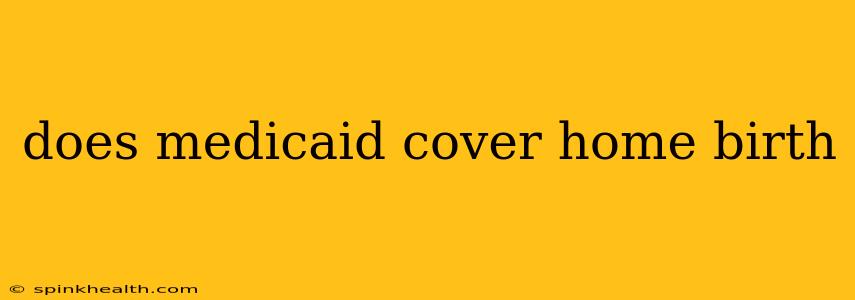Does Medicaid Cover Home Birth? A Journey Through the Labyrinth of Healthcare Coverage
The question, "Does Medicaid cover home birth?" isn't a simple yes or no. It's a winding path through a complex healthcare landscape, varying significantly depending on your location and specific Medicaid program. My journey to unravel this mystery began with a surprising amount of conflicting information online, so I decided to delve deeper, hoping to illuminate this often-confusing topic for expectant parents.
My own experience researching this topic started with a frantic search – a close friend was expecting and exploring home birth options, facing the financial hurdles that often accompany such a decision. The conflicting online information highlighted just how crucial it is to have clear, reliable guidance.
What Factors Influence Medicaid Home Birth Coverage?
The biggest determining factor is your state. Each state administers its own Medicaid program, and the level of coverage for home births varies widely. Some states explicitly cover home births under certain circumstances, while others don't offer any coverage at all. Even within states that do cover it, the criteria can be strict.
Secondly, the specifics of your Medicaid plan matter. Some plans may cover home births attended by certified nurse-midwives (CNMs) but not by independent midwives. Others might have limitations on the number of home visits allowed or the types of medical services included.
What are the typical requirements for Medicaid to cover home birth?
Many states that offer coverage require a low-risk pregnancy. This means the mother-to-be must meet specific health criteria, often including:
- No significant health complications: Pre-existing conditions, gestational diabetes, or high blood pressure can exclude a pregnancy from home birth coverage under Medicaid.
- Regular prenatal care: Consistent visits with a qualified healthcare provider are usually mandatory.
- Certified provider: The midwife attending the birth must be licensed and certified by the state. This is crucial, as some states only cover births overseen by CNMs.
Does Medicaid cover home birth if I have complications?
This is a critical point. Medicaid is far less likely to cover a home birth if the pregnancy is considered high-risk. High-risk pregnancies often require the immediate access to advanced medical technology and intervention available only in a hospital setting. If complications arise during labor, a swift transfer to a hospital might be necessary, which can lead to significant additional costs not covered by Medicaid.
What if my state doesn't cover home birth under Medicaid?
If your state doesn't offer Medicaid coverage for home births, exploring alternative options is crucial. This could involve:
- Private health insurance: Check if your private health insurance covers home births.
- Payment plans with midwives: Many midwives offer payment plans to help make home birth more accessible.
- Crowdfunding: Platforms like GoFundMe can help raise funds to cover the costs.
How can I find out if my state covers home birth through Medicaid?
The best approach is to directly contact your state Medicaid office or visit the Medicaid website for your state. They can provide accurate, up-to-date information about home birth coverage in your area.
Navigating the world of Medicaid and home birth coverage can be challenging. The journey from initial uncertainty to informed decision-making requires persistence and thorough research. Remember, the key is to understand the specific rules and regulations within your state and your individual Medicaid plan. Only then can you make a well-informed choice about your birth plan.

